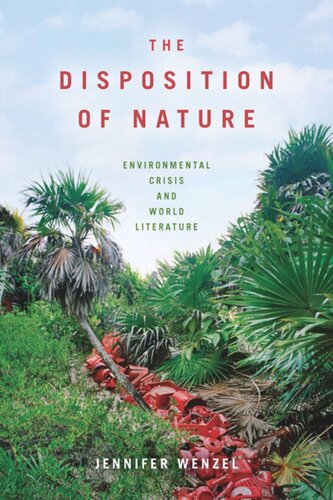

Most ebook files are in PDF format, so you can easily read them using various software such as Foxit Reader or directly on the Google Chrome browser.
Some ebook files are released by publishers in other formats such as .awz, .mobi, .epub, .fb2, etc. You may need to install specific software to read these formats on mobile/PC, such as Calibre.
Please read the tutorial at this link: https://ebookbell.com/faq
We offer FREE conversion to the popular formats you request; however, this may take some time. Therefore, right after payment, please email us, and we will try to provide the service as quickly as possible.
For some exceptional file formats or broken links (if any), please refrain from opening any disputes. Instead, email us first, and we will try to assist within a maximum of 6 hours.
EbookBell Team

4.4
22 reviewsThis book examines how literature shapes understandings of nature and can therefore be both complicit in environmental harm and part of an environmentalist practice. The book devotes particular attention to formerly colonized regions (e.g. Africa and South Asia) in order to understand the relationships among imperialism, globalization, and environmental injustice.
This book shows how our understandings of nature are shaped by literature and other forms of cultural imagining–for better and for worse. Literature is complicit in environmental crisis, yet might also offer ways of confronting it.